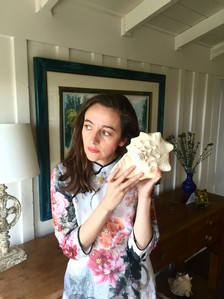
Aleksandra Vrebalov (Serbia/USA) has written more than 70 works of music, including her opera Mileva (to a libretto by Vida Ognjenović), composed for the 150th anniversary of the Serbian National Theatre in Novi Sad. Her many commissions include two works composed for Carnegie Hall, over ten pieces written for the Kronos Quartet, as well as works written for Harvard University’s Fromm Music Foundation, and Rambert and Limón dance companies. Vrebalov has received awards from the American Academy of Arts and Letters, New Music USA, Vienna Modern Masters, and American Society of Composers, Authors and Publishers (ASCAP). Vrebalov has won two Mokranjac Awards, for Mileva and her oratorio Stanice (Stations), as well as the Golden Badge of the Culture and Education Association of Serbia, for her contribution to Serbian culture. She is a member of the New York-based group South Oxford Six and the founder of the international summer courses in composition held in Sombor, Serbia. The season of 2017–18 will see the premières of her pieces for the shakuhachi virtuoso James Schlefer; a chamber piece for China’s Forbidden City Orchestra; Concerto for Accordion and Orchestra for Goran Stevanović; ANNA, a full-evening ballet choreographed by Dušan Týnek; and Concerto for the Kronos Quartet and orchestra.
Spell No. 7consists of fragments of daydreaming and reminiscing about Bach’s Violoncello Suite No. 5. As a whole, the piece is based on Bach’s musical language, structure, and themes. I used the Suite’s most recognisable details as micro-particles, which I multiplied and expanded (in time), to the outer limits of recognisability and formal compactness. Working on the piece, I fantasised that the work could be performed as a duo, along with Bach’s Suite No. 5, and that the violist, following his or her own feeling of time and form, could choose when to join in with the violoncello, interpreting this new material as a shadow around the clear contours of the cello part. In that sense, the long, extended notes in the viola part contain an unbroken flow of Bach’s timeless original, which served as its inspiration.


